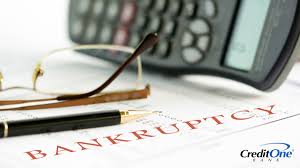Understanding Bankruptcy: A New Beginning, Not an End
Bankruptcy often carries a heavy stigma, but it is important to understand that it is not the end of your financial journey; rather, it is an opportunity for a new start. When you file for bankruptcy, it wipes the slate clean in many ways, offering relief from overwhelming debt and providing a path to regain financial stability. However, while bankruptcy clears past debts, it does not erase your ability to build a sound financial future.
In this article, we will explore how to approach rebuilding your financial credibility after bankruptcy, focusing on practical steps such as opening a secured credit card, maintaining consistent payment habits, monitoring your credit report, and seeking professional support if needed. By understanding the process and taking proactive measures, you can restore your creditworthiness, regain confidence, and set yourself on the path toward financial success within a relatively short period.
What Happens When You Declare Bankruptcy?
Bankruptcy is a legal procedure designed to help individuals or businesses eliminate or repay their debts under the protection of the bankruptcy court. When a bankruptcy is filed, the debtor’s obligations to repay certain debts are either discharged or reorganized.
The two common types of personal bankruptcy are Chapter 7 and Chapter 13. Chapter 7 involves the liquidation of assets to pay creditors and results in a discharge of most debts; it generally takes a few months to complete. Chapter 13, on the other hand, is a repayment plan that lasts from three to five years, allowing the debtor to keep their assets while gradually paying off debts.
Ultimately, bankruptcy provides legal protection from creditors and collections activities. While this legal status removes many obligations, it stays on your credit report for up to 10 years, which can affect obtaining new credit and loans during that time frame.
The Impact of Bankruptcy on Your Credit Score
Bankruptcy has a significant impact on your credit score because it represents a major credit event. Your credit score reflects your creditworthiness and influences lenders’ decisions regarding credit approvals and interest rates.
Immediately after bankruptcy, your credit score will drop substantially, possibly by 100 points or more depending on your previous financial status. This decrease is understandable because bankruptcy signals lenders that you have experienced severe financial difficulties. However, this impact is not permanent if you take the right steps.
Rebuilding credit after bankruptcy involves responsible financial behavior and time. Most individuals who consistently manage their credit well after bankruptcy begin to see improvements within 12 months. Credit reporting agencies will update their records as you demonstrate stable payment habits on new credit accounts.
Opening a Secured Credit Card: Your First Step to Rebuilding Credit
One of the most effective strategies for rebuilding credit after bankruptcy is to open a secured credit card. A secured credit card functions similarly to a traditional credit card but requires a security deposit which typically serves as your credit limit.
This deposit reduces the lender’s risk while allowing you to demonstrate responsible credit use. Making purchases on a secured card and paying the balance in full every month shows lenders and credit bureaus that you are managing credit responsibly.
To maximize the impact of your secured card, follow these recommendations:
- Make small purchases using the secured card regularly.
- Pay off the full balance every month to avoid interest charges.
- Keep your credit utilization low, ideally under 30% of your credit limit.
- Never miss a payment to maintain a positive payment history.
Consistently following these practices helps rebuild your credit score over time by producing positive data on your credit report.
Monitoring Your Credit Report: Ensuring Accuracy and Progress
Regularly monitoring your credit report is crucial during your credit rebuilding journey. Credit reports contain your credit history, payment records, outstanding debts, and any public records such as bankruptcies or liens.
By reviewing your credit report periodically, you can:
- Verify that all information reflects the bankruptcy discharge correctly.
- Detect and dispute any errors or inaccuracies that might harm your credit score.
- Track your progress as positive information like timely payments gets reported.
- Prevent identity theft by noticing unauthorized accounts or suspicious activities.
Annual access to credit reports from the three major credit bureaus — Equifax, Experian, and TransUnion — is free. Taking advantage of these reports and focusing on accuracy helps maintain a clear path to financial recovery.
Timeframe for Rebuilding Credit Post-Bankruptcy
While bankruptcy remains on your credit report for up to 10 years, rebuilding your credit does not have to take that long. Many people see tangible improvements within one year of disciplined financial management.
Within this year, making on-time payments, limiting credit use, and demonstrating financial responsibility can gradually increase your credit score and improve lender perception. This progress enables access to better credit products, lower interest rates, and increased financial opportunities.
Patience and consistency are key during this period, as credit recovery is a process that reflects your commitment to rebuilding trust with lenders and credit bureaus.
Bankruptcy Is Not Failure: It’s a Restart
It is essential to change the narrative around bankruptcy from being a failure to recognizing it as a pivotal restart. Financial difficulties can happen to anyone due to various reasons such as medical emergencies, job loss, or unexpected expenses.
Choosing bankruptcy is a legal and strategic decision to regain control and prevent ongoing financial distress. This choice opens doors to regain stability, rebuild financial credibility, and plan wisely for future goals.
Many individuals have successfully rebuilt their credit and financial lives after bankruptcy by adopting sound money management habits, seeking expert advice, and cultivating a long-term vision.
When to Seek Professional Legal Help
Bankruptcy law can be complex, and each case is unique. If you are considering bankruptcy or are in the process of rebuilding your credit following a bankruptcy, professional legal assistance can provide invaluable guidance.
A qualified bankruptcy attorney or financial counselor can help you:
- Understand your options and the specific type of bankruptcy suitable for your situation.
- Navigate the legal procedures correctly to maximize benefits and protect your rights.
- Develop a tailored plan to rebuild your credit and financial health efficiently.
- Communicate effectively with creditors and credit bureaus to ensure accurate reporting.
If you require expert assistance, please reach out through the communication channels provided in our bio or send a private message for a confidential consultation.
Legal Consultant Marketplace CONSULTANT is dedicated to offering comprehensive legal support for individuals navigating bankruptcy and credit recovery. Our network of experienced attorneys and financial advisors is here to guide you every step of the way toward a secure financial future.
Bankruptcy can be a challenging experience, but it does not define your financial future. By opening a secured credit card, ensuring consistent full monthly payments, monitoring your credit report for accuracy, and seeking proper legal help, you can recover your creditworthiness and rebuild financial trust within a year. Remember, bankruptcy is not a failure—it is a fresh start, an opportunity to learn, grow, and create a stronger foundation for the future. Reach out for professional support to help guide you through this journey successfully.































